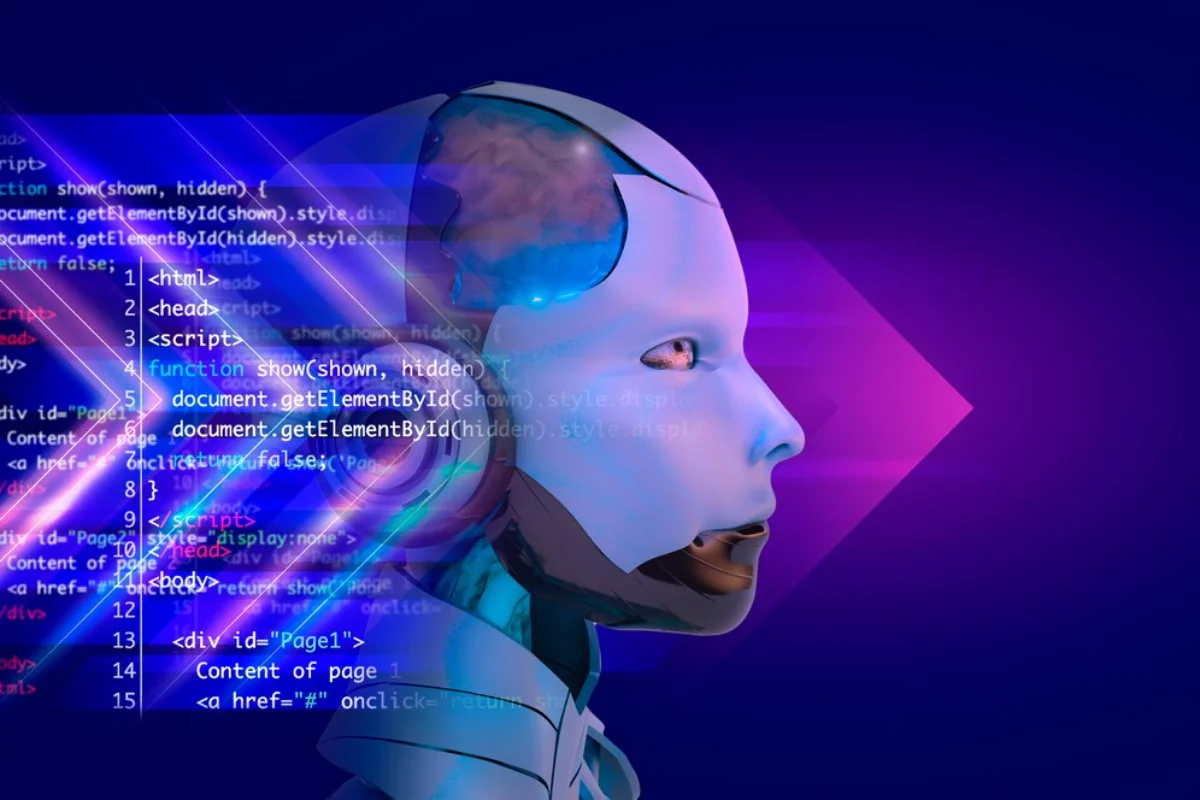The Technology Blog

AI & Privacy Concerns: What You Should Know
Artificial Intelligence (AI) is revolutionising industries, improving efficiency, and enhancing everyday digital interactions. However, alongside its benefits, AI raises significant concerns about data security AI, AI privacy issues, and AI data collection.
From facial recognition and personalised advertising to automated decision-making, AI systems collect and process vast amounts of personal data. But how secure is this data? How are organisations using AI to track, analyse, and predict user behaviour? And most importantly, what can individuals do to protect their privacy?
This article explores the biggest AI privacy issues, the risks associated with AI data collection, and what governments, companies, and individuals are doing to ensure data security AI remains a priority.

How AI Collects and Uses Data
AI systems thrive on data. The more data they process, the smarter they become. However, this data often includes personal, financial, and sensitive information. AI-powered tools and services collect data in several ways:
1. Online Tracking and Behavioural Analysis
AI-powered algorithms track user interactions, browsing habits, and purchasing behaviour. Companies like Google, Facebook, and Amazon use AI to analyse user preferences and serve personalised ads. While this improves user experience, it also raises concerns about how much data is being collected and stored.
2. Smart Assistants and Voice Recognition
Virtual assistants like Amazon Alexa, Google Assistant, and Siri listen to voice commands to provide assistance. However, reports suggest that these devices continuously record snippets of conversations, raising AI privacy issues about whether users are being monitored without consent.
3. Facial Recognition Technology
Facial recognition AI is used for security authentication, social media tagging, and surveillance. Governments and law enforcement agencies employ this technology for public safety, but it also raises concerns about mass surveillance and potential misuse.
4. AI in Healthcare and Biometric Data
AI is transforming healthcare with predictive diagnostics, personalised medicine, and wearable health trackers. However, AI data collection in this sector includes DNA sequencing, medical records, and biometric scans, which, if leaked, could have serious implications for patient privacy.
5. AI in Financial Services
Banks and fintech companies use AI-driven credit scoring and fraud detection to assess customer eligibility for loans and prevent cyber fraud. However, concerns arise when AI systems rely on biased datasets, leading to unfair lending decisions and financial discrimination.
6. AI in Social Media and Content Moderation
Social media platforms use AI to moderate content, detect hate speech, and remove misinformation. However, AI algorithms also shape what users see online, potentially influencing political opinions, personal beliefs, and even mental health.

Key AI Privacy Issues
1. Lack of Transparency in AI Data Collection
Many organisations do not disclose how much data they collect, how long they retain it, or whether it is shared with third parties. AI systems often operate as “black boxes,” making it difficult to understand how decisions are made or what data is being used.
2. Data Security Risks and AI Cyber Threats
AI-driven cyberattacks are becoming more sophisticated, leading to:
- Data breaches – Sensitive personal and financial information is leaked due to poor security measures.
- Deepfake fraud – AI-generated deepfakes are being used for identity theft and misinformation.
- AI-powered phishing – Hackers use AI-generated content to create more convincing phishing attacks.
3. AI Discrimination and Bias
AI models can amplify biases in datasets, leading to unfair treatment in areas like hiring, lending, and law enforcement. If an AI system is trained on biased data, it can result in racial, gender, or socio-economic discrimination.
4. Government and Corporate Surveillance
Governments worldwide use AI-powered surveillance for crime prevention and national security. However, in some countries, this has led to concerns over mass surveillance, tracking of citizens, and potential misuse of personal data.
5. The Challenge of AI Data Anonymisation
Even when companies claim to anonymise user data, AI can re-identify individuals by cross-referencing different data points. This makes it difficult to maintain true privacy.

How AI Privacy Issues Are Being Addressed
1. AI Regulations and Privacy Laws
Governments worldwide are introducing laws to regulate AI data collection and protect users’ rights. Some notable examples include:
- General Data Protection Regulation (GDPR) – Europe: Enforces strict rules on how companies collect, store, and process AI-driven data.
- California Consumer Privacy Act (CCPA) – USA: Allows consumers to opt out of AI-powered data collection for advertising purposes.
- UK Online Safety Bill: Focuses on AI regulation in social media content moderation and user data protection.
- China’s AI and Data Privacy Laws: Regulate AI surveillance technologies and restrict the export of AI-powered facial recognition software.
2. AI Ethics Guidelines
Tech giants like Google, Microsoft, and IBM are introducing AI ethics frameworks to ensure responsible AI development. These include:
- Transparency and Explainability – Making AI decision-making processes more understandable.
- Fairness and Bias Reduction – Eliminating discrimination in AI training datasets.
- User Consent and Control – Allowing users to opt in or out of AI-based data collection.
3. AI-Powered Privacy Enhancements
Ironically, AI is also being used to enhance privacy protection, such as:
- Federated Learning – AI models that learn from user data without actually storing it in centralised servers.
- Differential Privacy – Techniques that prevent AI from identifying individuals within datasets.
- End-to-End Encryption – AI-powered encryption tools that secure private communications.
4. Corporate Responsibility in AI Data Security
Companies are under increasing pressure to adopt data security AI measures to prevent breaches and cyberattacks. This includes:
- Stronger authentication protocols to protect user accounts.
- Regular audits of AI-powered data processing systems.
- AI firewalls that detect and prevent cyber threats in real-time.
How Individuals Can Protect Their AI Privacy
While regulations and corporate policies are improving, individuals must also take steps to protect their privacy. Here are some practical tips:
1. Review AI Privacy Settings
- Adjust privacy settings on Google, Facebook, and Amazon to limit AI tracking.
- Disable microphone and camera access for apps that don’t need them.
2. Be Cautious About Sharing Personal Data
- Avoid giving excessive permissions to AI-driven apps.
- Use anonymous search engines like DuckDuckGo to reduce AI tracking.
3. Use AI-Privacy Tools
- Enable VPNs to encrypt internet traffic.
- Use password managers to protect sensitive information.
4. Stay Informed About AI Data Collection Practices
- Read privacy policies before agreeing to terms.
- Stay updated on AI regulations that impact consumer rights.
The Future of AI Privacy and Data Security
As AI continues to evolve, data security AI will become even more critical. Future trends may include:
- Stronger AI regulations to hold companies accountable.
- Advancements in AI-driven cybersecurity to counter AI-powered cyber threats.
- Increased transparency from corporations regarding data collection and AI use.
- Greater public awareness of AI privacy risks and best practices.
Ultimately, achieving a balance between AI innovation and privacy protection will require cooperation between governments, businesses, and individuals.
AI Privacy Issues: Protecting Data Security in an AI-Driven World
AI is transforming industries, but it also raises serious AI privacy issues related to AI data collection and data security AI. From online tracking and facial recognition to automated decision-making, AI’s reliance on personal data requires urgent regulation and ethical oversight.
While governments introduce privacy laws and corporations develop AI ethics policies, individuals must also take steps to protect their privacy in an AI-driven world.
The future of AI privacy will depend on global collaboration, technological advancements, and continued vigilance to ensure that AI remains a force for good—without compromising personal freedoms.









